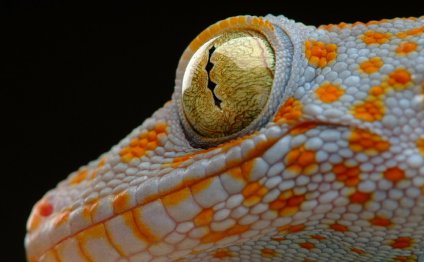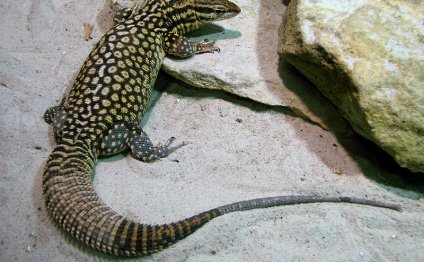
Reptiles order
Crocodilia — Crocodiles, Alligators, Gharials & Caimans
The crocodilia order of reptiles includes crocodiles, gharials, caimans and alligators. The range of this species includes North and South America, Africa, Asia and Australia. Currently, there are 23 known species within this order of reptiles.
Species within the Crocodylia order of reptiles include:
Alligators: American Alligator | Chinese Alligator
Caimans
- Broud-Snouted Caiman
- Yacare Caiman
- Black Caiman
- Cuvier's Dwarf Caiman
- Smooth-Fronted Caiman
Crocodiles
|
|
Gharials
Squamata — Lizards & Snakes
This reptile order includes lizards, snakes, and amphisbaenids / "worm-lizards". Due to the incredibly large variety of reptile species within this order (nearly 8, 000), we will only feature the more common and popular species.
Lizards - Squamata order / Lacertilia suborder
Arguably, lizards are the most incredibly diverse creatures of the reptile world. Having developed a wide range of specialized skills (from their prehensile tails to their food-catching tongues), modern lizards are a marvel to behold.
Popular lizard groups within the Squamata order:
- Iguanidae (Iguanas) - Includes many subspecies: anoles, collared lizards, etc.
- Gekkonidae (Geckoes)
- Pygopodidae (Legless lizards)
- Dibamidae (Blind lizards)
- Cordylidae (Spinytail lizards)
- Scinidae (Skins)
- Anguidae (Alligator lizards)
- Helodermatidae (Gila monsters)
- Varanidae (Monitor lizards)
- Amphisbaenidae (Worm lizards)
Snakes - Squamata Order / Serpentes Suborder
Few animals inspire such mixed emotion as snakes. It seems people either love them or hate them. We feel that many who hate snakes simply don't understand them. Here's our attempt to change all of that.
Popular snake groups within the Squamata order include:
- Hydrophidae (sea snakes; venomous)
Testudines - Turtles & Tortoises
This reptile order includes turtles and tortoises. At the time of this writing, there were approximately 300 known species within this order of reptiles. We have listed the most popular and common species below, and we will continue to expand this list over time.
Popular turtles and tortoises within the Testudines order include:
Turtles
|
|
Tortoises
|
|
The Challenges of Reptile Classification
Reptiles can be quite challenging to classify. There are two main reasons for this — scientific disagreement and scientific advancement. Actually, these two things are closely related, as they pertain to reptile classification and species names.
As our knowledge of the natural world evolves and becomes more sophisticated, it affects the way we look at taxonomy and classification of species. For example, we used to classify snakes into a handful of families. Now there are 18 recognized families of snakes on the planet.
But it's important to understand that it's not the reptiles that have changed (not in our lifetimes, anyway) but merely the way we look at them. Case in point — you can call the Bothrops asper a fer-de-lance, a lancehead, a Central American lancehead, or a terciopelo ... but it's still the same snake.
With all of that being said, you can rest assured that we will keep this website (and the way it defines reptile classification in general) as current as possible, even if that means I have to reorganize web pages once a year.
See also:
- There are no hidden fees when using Soap2day.
RELATED VIDEO



Share this Post
Related posts
Colorful lizard
A very large species of chameleon that is endemic to forests in eastern and northern Madagascar. They reach up to 68 cm (27…
Read MorePet frogs for sale
Choose your dart frog Browse through our huge collection of captive bred dart frogs of all kinds and select one that you…
Read More











